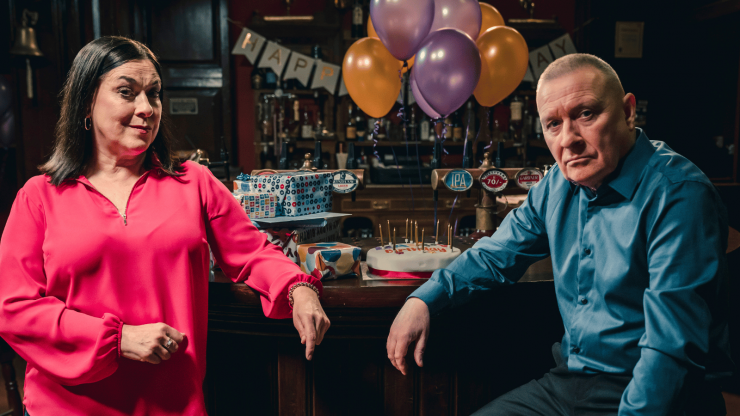Bectu head Philippa Childs has called on the government to convene an "urgent industry summit" to address the "shocking drought of work" for freelancers.
Childs has written to culture secretary Lucy Frazer highlighting that the MP's claims of the UK's "booming" creative industries referred to 2022's production boom rather than the current situation.
She referenced a recent Bectu poll of 4.000 members, of whom 68% of film are currently out of work, a figure that rises to 82% in the East Midlands and 79% in the North East - "contrary to the government's levelling up agenda", Childs writes.
She said much of the workforce is facing “a shocking drought of work and debilitating financial and mental health”.
Childs said that the TV workforce must have a "seat at the table" and urged Frazer to bring together broadcasters, industry stakeholders and government, to discuss the crisis and possible solutions.
Frazer yesterday singled out Oscar-nominated movie Barbie as "brilliant creativity driving our economy". She said the movie has contributed £80m to the UK economy, "spurring growth and jobs".
Last week, the culture secretary said the DCMS estimated that as of December 2023, the UK creative industries had grown by more than 10% since the pandemic, stating that this was achieved partly due to the government's £1.57bn Culture Recovery Fund, which has suppored nearly 220,000 jobs and 5,000 organisations.
Frazer said that the Film and TV Restart Scheme has supported more than 1,200 film and TV productions and more than £3 billion in production spend, and that the government is committed to support more than one million jobs in the creative industry by 2030.
'An open and honest conversation'
Childs' letter followed her keynote speech to the Royal Television Society last week, in which she urged broadcasters to have an “open and honest conversation about what the future looks like” for freelancers.
She said the priority right now must be to examine how “to make sure people survive and thrive in this industry and how not to lose all the gains that we have made in terms of diversity”.
While the BBC in particular has talked positively with Bectu about finding solutions, Childs said she was concerned that its response so far as been largely focused on giving money to the Film & TV Charity to pay grants and providing training. “What freelancers probably want is an open and honest conversation about what the future looks like,” she said.
Childs said that industry doesn’t “horizon gaze enough” during booms in production, with the result that the workforce is not futureproofed for more difficult times, such as now.
She called for “a little more honesty when encouraging people to come into this industry,” in terms of “the challenges as well as the positives”.
She added: “The time for warm words and platitudes has passed, and we need urgent action to halt the drain of skills and talent haemorrhaging from the industry.”
Childs argued that the Screen Sectors Skills Task Force, introduced last year to close the “burgeoning disconnect” between the workforce and the demand for skills ,now appears “out of touch” with the pressing realities.
In Bectu’s poll, 37% said they planned to leave the industry within five years, up from 24% in the union’s previous survey last summer.
The “shocking” figures “should ring alarm bells for all of us”, she said. “We are at a tipping point – something has to change.”
The commissioning slowdown, advertising market collapse and last year’s US labour strikes were, she said, “the perfect storm” that had created the toughest period she has faced to date her five years as Bectu head.
“What has been really frustrating for people during this period is that there just isn’t enough honesty about what the situation is; people are just floundering about what might happen, and when they might get back to work."


